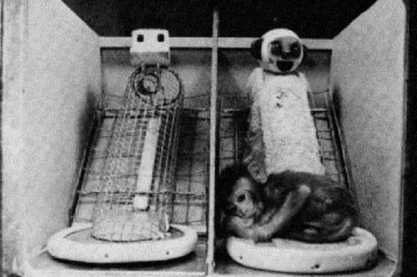Job insecurity climate: On shared perceptions of job insecurity
keywords:
insecurity / working
Job insecurity climate: On shared perceptions of job insecurity
Imagine that there is a general feeling of anticipating job loss at your work place or in your work group. Maybe something dramatic happened, for instance that the company you work for lost their biggest customer or client account. Or maybe there is just a sneaking suspicion in the work group that the company is not doing too well and that people might be let go. How would this affect you as a person, and how would it affect your work group? / more
Your mother, metaphors, and other monkey business: How experiences of physical warmth shape how we think about relationships

keywords:
embodiment / social cognition / conceptual metaphors / loneliness
Your mother, metaphors, and other monkey business: How experiences of physical warmth shape how we think about relationships
Peter was a student in his early twenties, and apart from several inconsequential trysts, had spent most of his life alone and indifferent to the world of love and romance. He had, in fact, become so accustomed to this lifestyle that he assumed this would be his fate, and had made peace with the prospects of a cold and lonely existence. This assumption was proven wrong when Peter met Gwen, a girl Peter had chanced to meet in one of... / more
House, M.D. and the science of psychogenic illness
keywords:
psychogenic illness / science
House, M.D. and the science of psychogenic illness
In an episode of House, M.D. (“Airborne”) an illness spreads among passengers on a commercial airplane via ostensibly non-biological means, creating a mini-epidemic with purely psychological origins. Could something like this happen in real life? Does the mere conviction that one is becoming physically sick increase one’s chances of contracting genuine symptoms of illness? This article explores this issue and in the process evaluates the realism of the plot from “Airborne.” / more
